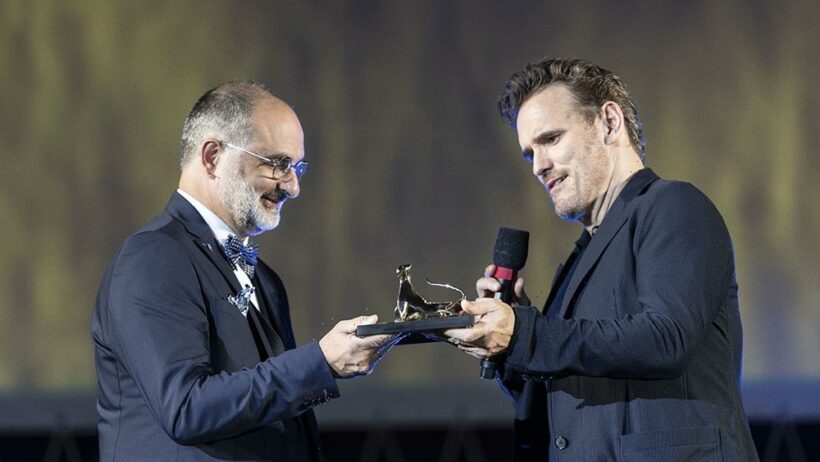Matt Dillon might have been awarded a Lifetime Achievement Award at Locarno on Thursday, but he still has “stuff to do.” And he wants you to know that.
“The first thing I thought was: ‘Oh wow, that’s really nice.’ And then: ‘I don’t feel like I am done just yet!’,” Dillon tells Variety ahead of the ceremony. But he has been around for a long time, he admits, having made his first film, Jonathan Kaplan’s “Over the Edge,” back in 1979.
“We were a bunch of actors playing juvenile delinquents, staying at a Holiday Inn in Colorado where McDonald’s slaughterhouses are based. One day we came across that old guy, a scenic painter, who worked on ‘The Wizard of Oz.’ It was like running into Mozart.”
Curious about everything, he was affected by seeing characters come to life and the idea of mirroring human nature right from the start.
“Somebody was suggesting I was a ‘child actor.’ I wasn’t! I didn’t become an actor because I felt like: ‘Momma, I want to sing’,” he states.
“My family didn’t have a background in show business. But as soon as I started, it just didn’t occur to me that it wouldn’t happen again. It was so natural. Many actors would tell you the same thing. I think it’s because we just don’t know what else to do.”
Dillon – who scored an Oscar nod for his performance in “Crash” – would look up to acting heavyweights Marlon Brando, Montgomery Clift or James Dean, trying to do his research and “find the character.”
“Improvisation, spontaneity and vulnerability were important to us early on,” he says. Later he became attracted to the spontaneity of another artist, Cuban singer Francisco Fellove. In 2020, he completed a documentary about his life, “El Gran Fellove,” his second feature as a director following “City of Ghosts,” made 18 years earlier.
“I am enormously proud of that film. I think I am a good director, I have to say. I really do believe that. But it’s never easy, because I don’t like to compromise. That doesn’t mean I am not flexible, I am, but I don’t want to compromise my conviction.”
He believes he will shoot another film in the future, he says.

“I like working with actors. I like playing with others, as they say, and you do learn things about yourself too. Someone said it’s the best job and the worst job, but it’s really the preeminent job in film. More than the writer, more than the actor. We are just department heads in the end.”
Still, new acting projects are coming as well, from Apple series “High Desert” with Patricia Arquette to Wes Anderson’s “Asteroid City” about an astronomy convention held in a fictional desert town. Margot Robbie, Scarlett Johansson and Tom Hanks also star.
“The good thing about working with Wes, who is a brilliant guy, is that I admire him and I just like him as a person. This makes it easy for you, because you can just trust this filmmaker’s vision. You know he is paying attention.”
Despite Anderson’s characteristic, one-of-a-kind visual style, Dillon wasn’t afraid of disappearing into the background, he says. Or rather, he has enjoyed it.
“I like to disappear into a film, into a character. That’s what I want to do. I am not an exhibitionist by nature, so I don’t need to be front and center,” he says, mentioning another famous collaborator.
“When I worked with Lars von Trier [on ‘The House That Jack Built’], the process was also very enlightening. He creates the rules and then breaks them, because they need to be broken. Also, Lars has a great sense of humor – he fired me a couple of times on that movie.”
That being said, he would still pick Gus Van Sant as the filmmaker who left the biggest impression on him, he states. Apart from “City of Ghosts,” Dillon presented their film “Drugstore Cowboy” at the Swiss festival.
“I really revered Coppola, but he was this patriarchal figure to me. When I worked with Van Sant, we were much closer. I was really able to absorb things from the way he worked,” he adds, calling himself an artistic “sponge” whose creativity is fertile but not structured.
“I have a lot of ideas and it’s one of my strengths, but I learnt so much when making that documentary. My curiosity about Cuban music is vast, but the audience can’t absorb all this data. There needs to be an emotional connection first.”
Read More About:
Source: Read Full Article
